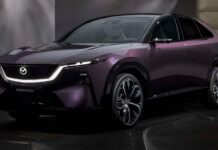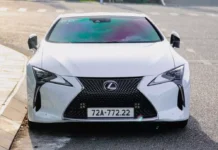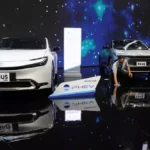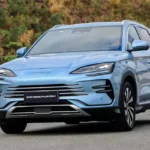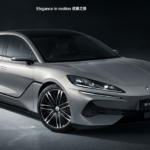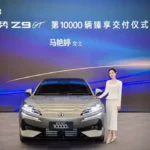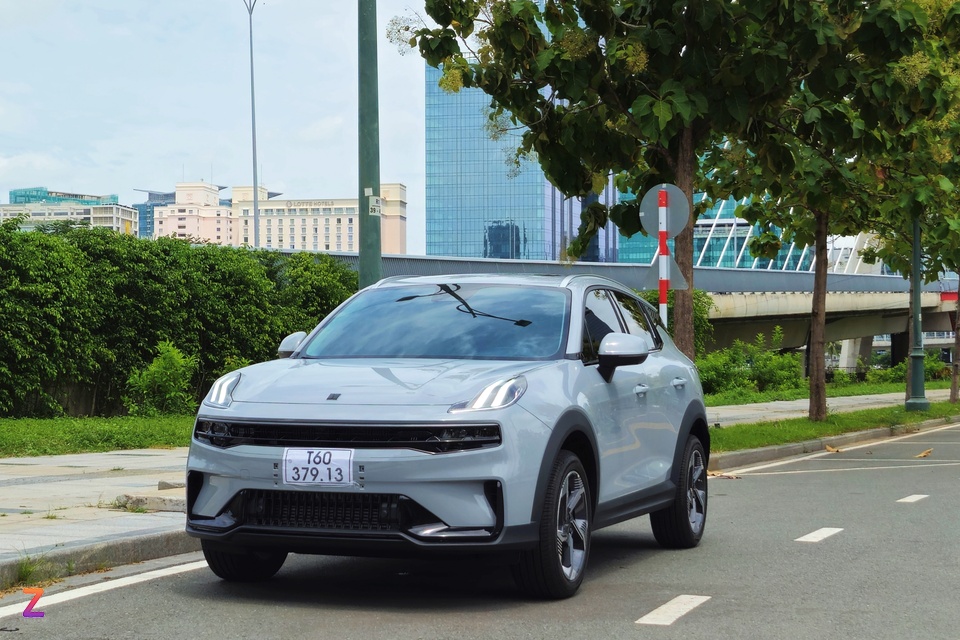
|
The year 2024 marks a period of explosive growth for China’s automotive industry. Chinese automakers are not only capturing market share in their home country but also expanding their presence in international markets.
While the following brands have made their debut in Vietnam and created a strong presence, their sales performance has not been impressive. In contrast to the somewhat lackluster situation in the Vietnamese market, how are these Chinese automotive giants performing globally?
BYD
As of the end of November, BYD’s total sales volume reached over 3.75 million units. This impressive performance has not only solidified BYD’s leading position in China but also propelled it past many established automakers to become the fourth best-selling brand globally.
Currently, the majority of BYD’s sales come from its home market. In November, more than 78% of BYD’s global sales were from the Chinese domestic market.
| |
|
A line-up of BYD vehicles when they first appeared in Vietnam. |
In the new energy vehicle segment, BYD and Tesla are engaged in a fierce competition, taking turns to lead the market. By the end of the third quarter, BYD sold more than 1.173 million pure electric vehicles, while Tesla achieved sales of 1.329 million units.
The Chinese electric vehicle king made a grand entrance into the Vietnamese market in the second quarter. Currently, BYD has brought almost all of its flagship products to Vietnam, including the Dolphin, Atto 3, Seal, Han, and MPV M6. Two new models, the Tan and Denza D9, are available in Vietnam through pre-orders.
As of now, BYD has not disclosed its sales figures in Vietnam. Judging by the scarce presence of their vehicles on Vietnamese roads, it is evident that BYD still needs more time to gain traction and improve sales performance in Vietnam, a market that tends to be “discerning” towards Chinese automotive brands.
SAIC
For the first eleven months of the year, SAIC recorded total sales of over 3.52 million vehicles. The company owns several automotive brands, including Morris Garages (MG), Immotors, Roewe, and Maxus.
Among these, only MG has established a presence in Vietnam. The brand first entered the Vietnamese market in 2012 but quickly disappeared after a few months. It wasn’t until 2020 that MG made a comeback under a new distributor, Tan Chong Group.
| |
|
New MG 5. Photo: Vĩnh Phúc. |
MG is one of the few Chinese automotive brands that has achieved notable sales performance in Vietnam. In July, the company surprisingly announced that its sales volume for the 12-month period (July 2023-June 2024) exceeded 10,000 units. MG’s pricing strategy has played a crucial role in its success.
Instead of directly competing with established Korean and Japanese brands that already have a strong foothold in Vietnam, MG vehicles are typically priced significantly lower than their segment rivals, attracting a distinct set of customers.
For instance, the New MG5 MT, positioned in the C-segment sedan category, competes with the likes of Hyundai Elantra, Kia K3, and Mazda3. However, the MG 5’s price is equivalent to many smaller A-segment cars in the market. The base model with a manual transmission is priced at 399 million VND (approximately $16,950), while the top-of-the-line CVT Del trim is priced at 499 million VND (approximately $21,170).
In China, Maxus and Roewe are relatively new players but have quickly made a positive impression on consumers thanks to a series of records, especially in the hybrid segment with extended-range electric capabilities (EREV).
| |
|
Roewe D7. Photo: SAIC. |
A notable example is the Roewe D7 sedan, which set a Guinness World Record for the longest distance traveled on a single charge for a PHEV, covering 2,208 kilometers on one tank of fuel.
In Europe, SAIC has achieved strong sales performance thanks to the popularity of MG’s new energy vehicles, particularly the MG 4 EV. According to the European Alternative Fuels Observatory (EAFO), the MG4 EV was the ninth best-selling electric vehicle in Europe in the first ten months of 2024, with sales of 45,761 units.
Geely
For the first eleven months of the year, Geely recorded a total group sales volume of over 3 million units globally across its various automotive brands.
In Vietnam, two of Geely’s brands, Volvo and Lynk & Co, have already established a presence. Recently, sources from Tri Thức – Znews revealed that Geely Auto and Zeekr, two other subsidiaries of Geely, are set to be introduced to Vietnamese consumers.
| |
|
Lynk & Co showroom in Ho Chi Minh City. |
In September, Tasco Auto and Geely announced plans to assemble vehicles in Vietnam, with an annual capacity of up to 75,000 units. The project is expected to commence construction in early 2024 and begin operations from early 2026.
In addition to the four aforementioned brands, the Geely group also owns several other automotive brands, including Polestar, Proton, Livan/Maple, and Radar Auto. In China, Geely is the third best-selling brand, only behind BYD and Chery. In November, Geely sold 123,000 units, even surpassing BYD in the pure electric vehicle segment.
With its diverse portfolio of brands, Geely has demonstrated success in the European and Latin American markets, particularly with its Zeekr and Lynk & Co brands.
| |
|
Zeekr 7X. Photo: Geely. |
In 2023, Lynk & Co’s global sales volume reached 220,250 units, an increase of 22% compared to the same period in 2022. The brand’s success can be attributed to its long-term rental policy in Europe, which attracted over 200,000 registrations upon its launch.
On the other hand, Zeekr has gained traction among customers in the Americas. As of 2024, Zeekr has sold approximately 93,000 vehicles.
Chery
Chery was one of the first Chinese automotive groups to express interest in entering the Vietnamese market, but it was among the last to arrive in 2024. The group has a joint venture with Geleximco and plans to build a factory in Thai Binh province with an expected capacity of 200,000 units per year, producing Omoda and Jaecoo vehicles.
Chery’s first product in Vietnam, the Omoda C5, was introduced to consumers in late November. In contrast to their cautious approach in Vietnam, Chery has experienced robust growth in their home market and Europe.
| |
|
Omoda C5. Photo: Vĩnh Phúc. |
The group’s global sales volume for the first eleven months surpassed 2.3 million units. In China, Chery was the leading exporter in this period, with over 1.04 million vehicles shipped overseas.
Chery owns several electric vehicle brands, including Chery, EXEED, Omoda, Jetour, Jaecoo, and Icar. Among these, Chery, Jaecoo, and Omoda are the three brands that the group is focusing on developing in the European market.
According to Gasgoo, Chery is planning to build the Ebro factory in Spain, utilizing the former Nissan factory with an expected capacity of 150,000 units per year.
Great Wall Motor (GWM)
GWM is a long-established Chinese automotive group, founded in 1984. The company owns multiple brands that cater to various market segments.
GWM’s global sales volume for the first eleven months of the year reached nearly 1.48 million units. In China, GWM consistently ranks among the top-selling brands in the new energy vehicle segment. However, the company has faced challenges in the European market.
In 2022, GWM partnered with Emil Frey, Europe’s largest automotive distributor, to sell their Ora and Wey brands on the continent. Despite high expectations, GWM’s performance in Europe fell short.
| |
|
Haval H6. Photo: Phúc Hậu. |
By the end of 2023, data showed that only about 6,300 GWM vehicles were registered in Europe. Financial difficulties and lackluster sales performance led GWM to close its headquarters in Munich, Germany, in late August, temporarily halting its expansion plans.
GWM entered the Vietnamese market in 2023 with the Haval H6 as their first offering. More than a year later, the Haval SUV has failed to make any significant impact.
In a market flooded with new models and aggressive discounts on used cars, Chinese vehicles with unfamiliar brand names and higher price tags, such as the Haval H6, have struggled to find traction. Haval has been forced to repeatedly adjust the pricing of the H6 to attract more customers.
The brand’s next offering, the Jolion SUV, has already started appearing at dealerships and is expected to be launched by the end of this year. This hybrid SUV was first teased by GWM Haval in the first quarter, but there is still no official information regarding its launch date and delivery timeline.
Recommended Reads for Your Next Drive
The Xe section presents a selection of captivating books to accompany you on your journeys. During those moments of relaxation and leisure while traveling, a good book can be an engaging companion.
Revolutionizing the Automotive Industry: BYD’s Strategic Expansion into South Korea with their Signature Model
BYD, a leading Chinese automotive manufacturer, has set its sights on the South Korean market with the launch of their flagship SUV, the BYD Atto 3. As a key player in the electric vehicle revolution, BYD is poised to make a significant impact in South Korea with this strategic move. The BYD Atto 3 is not just a vehicle, but a testament to the company’s innovation and commitment to delivering cutting-edge, sustainable transportation solutions on a global scale.


